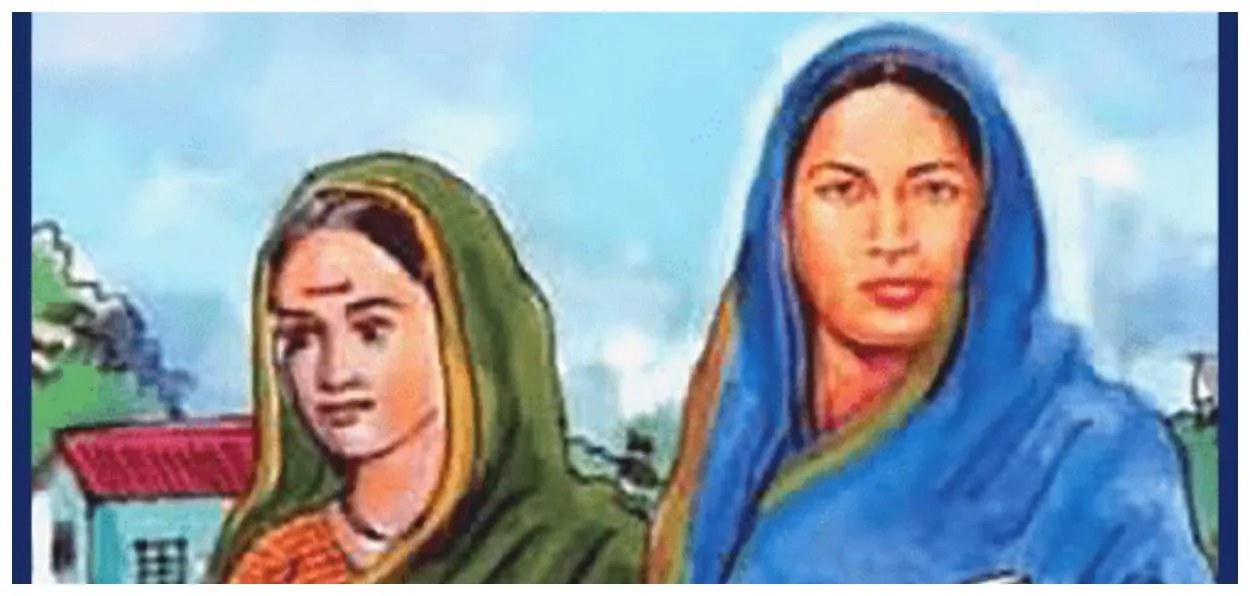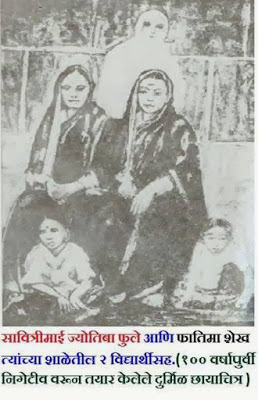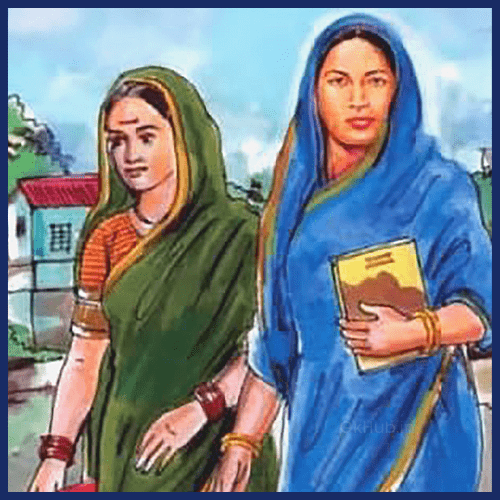
Mukhtar Khan
About 250 years ago, two Indian women Savitribai Phule and Fatima Sheikh joined hands to lay the foundation of women’s education in India. They worked for education and social reform as both are connected. It's only apt to remember the pioneer teachers who led the women and Dalit communities on the path of education against the hostility and opposition of society.
Savitribai Phule was born on 3 January 1831 at Naigaon in the Satara district of Maharashtra. She became a child bride at the age of 9 years to Jyotiba Phule, who continued his studies and also taught reading and writing to his wife at home.
Savitri was soon able to read and write Marathi and English and passed her school examinations. Savatribai had realized the importance of education and the couple wanted women of the backward classes to get an opportunity to read and write. Back then, there was no system of education for Dalits and backward castes.
Jyotiba and Savitribai decided to open a school for girls. However, the problem was there was no woman teacher around. Savitribai took responsibility for the project and she joined a teacher training course from Missionary College.
Thus, Jyotiba and Savitribai laid the foundation of the first women's school in Pune in 1848. Running a school for women was not an easy task. Initially, parents were not ready to send their daughters. They believed that educating girls would spell doom for the family. Savitribai did not lose heart. She visited people’s homes and tried to convince them about the importance of education.
Usman Sheikh was a childhood friend of Jyotiba Phule (also called Mahatma Jyotiba Phule). He had an open mind on women's education. It was because of him that Fatima became educated. Inspired by Savitribai's work, Fatima Sheikh joined her mission. These women together infused a fresh lease of life into the idea of a girls' school.

A newspaper clipping showing Savitribai Phule and Fatima Sheikh in their school
They enjoyed equal support from Jyotiba and Usman Sheikh. Initially, the school had only six girls. Gradually this number started increasing. Everything was going according to plan but the upper caste community of the city did not like this and accused the Phule family of violating the scriptures.
Despite this, Savitribai and Fatima Shaikh continued their efforts. The protesters put pressure on Jyotiba's father Govindrao and threatened him with ostracism. He gave a choice to his son - either run the school or leave the house.
Jyotiba and Savitribai left their house.
No one in Pune city was willing to support the couple. There the ‘boycott gang’ of the elite castes tried to enforce their social boycott. No one came to their aid due to the fear of social ostracism. The Phule family was labeled traitors and heretics. Mahatma Phule's childhood friend Usman Sheikh came forward as an angel. Usman Sheikh opened his private farm to the Phule family. The Shaikh family not only supported Savitribai and Jyotiba but also gave a part of their house to run the school.
In this way, a girls' school was started from the house of Fatima Sheikh. Usman Shaikh and Fatima also faced opposition from their community.

An artist's vsion of Savitribai and Fatima Sheikh
Soon they opened 18 schools around Pune city. At that time there was no education system for Dalit children. Mahatma Phule founded an organization called 'The Society for the Promoting Education of Mahar and Mang', thus starting a school for women as well as children from underprivileged communities.
Fatima Sheikh became the first Muslim woman who worked for the education of Muslim women and the Bahujan community. Given that it was 200 years ago, it was a great act of courage for a Muslim woman to step out of the four walls of the house and do such social work.
Fatima Sheikh not only carried forward Savitribai's mission but also stood by her side in crisis. In the absence of Savitri Bai, Fatima Shaikh used to take care of all the responsibilities of the school administration. The school enrolment increased. After completing their education, many students also started teaching in the school.
Gradually, Savitrbai expanded her social work. Due to the prevalent custom of Child marriages, there were a lot of young widows at that time. Besides, single mothers who were ostracized by society had no option but to commit suicide. On January 28, 1853, Mahatma Phule and Savitribai opened an ashram named 'Bal Hatya Pratibandhak Griha' for such victimized women. This was the first such ashram for women in the country.
In this ashram, women were taught small jobs and their children were taken care of. When they grew up, they were admitted to the school. One day an unmarried pregnant woman named Kashibai came to the ashram. Savitribai supported her, and later the Phule couple adopted Kashibai's newborn male child. He is known as Dr. Yashwant. Savitribai made him a successful doctor.
In 1896, the plague was spreading in Mumbai and Pune. Savitribai was serving the people and contracted the disease. She passed away on 10 March 1897.
Savatribai and Fatima Sheikh ignited the flame of education and knowledge in the lives of lakhs of women. They showed the way to the Dalits and women to a dignified life. Women today are on the path of progress, more independent than ever before thanks to the struggles and sacrifices of great people like Mahatma Phule, Savitribai, and Fatima Sheikh.
(Mukhtar Khan heads an organisation called Janavadi Lekhak Sangh, Maharashtra.)
